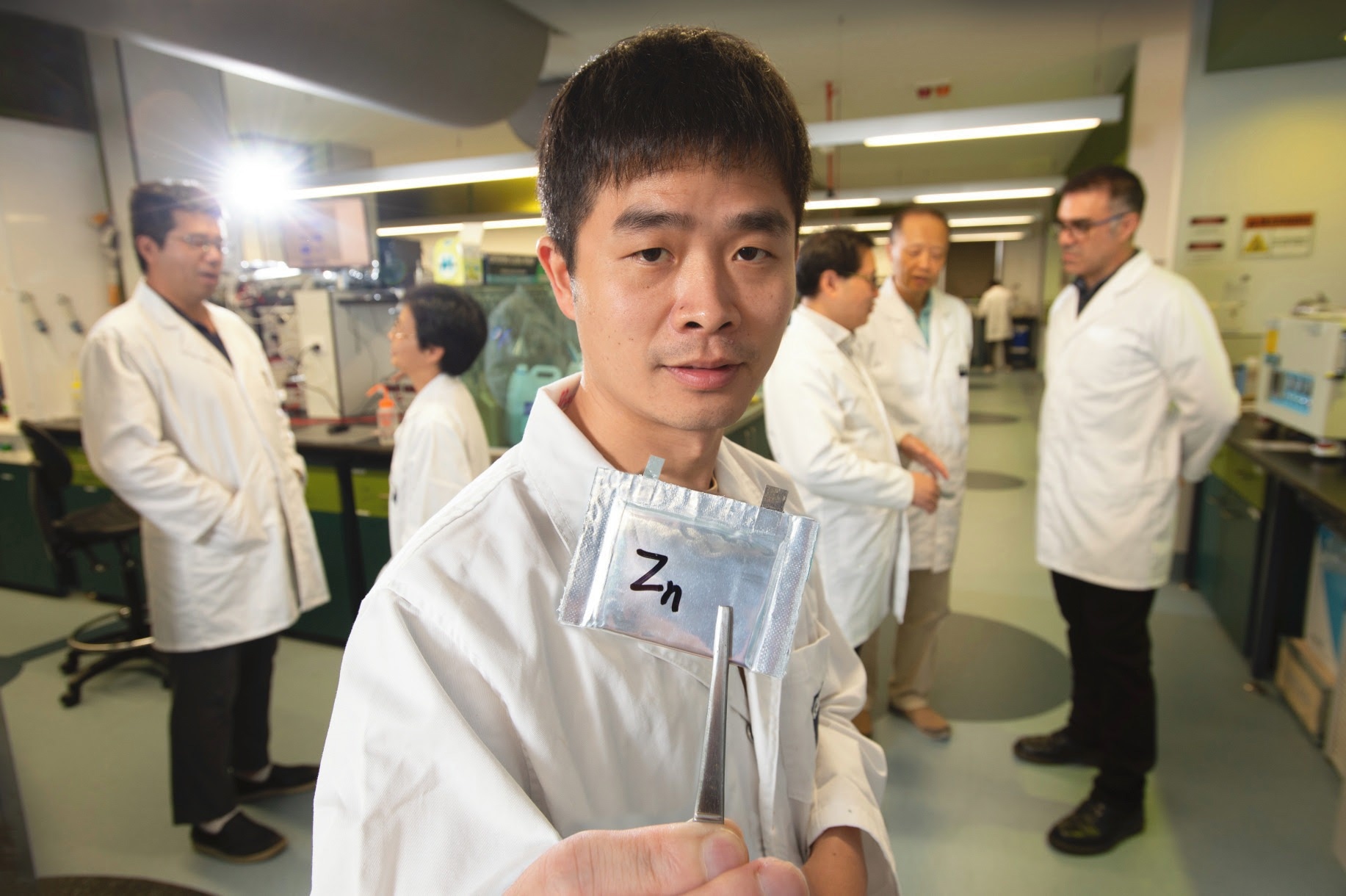A QUT-led team of international researchers has made a breakthrough in the development of a type of battery that is much safer and cheaper than the batteries currently charging our smart devices.

Image Credit: Qut
The research, published in the prestigious Journal of the American Chemical Society, has demonstrated a way of improving the voltage of aqueous zinc-ion batteries, which are a type of rechargeable battery which have a water-based electrolyte.
QUT researchers involved in the study are Professor Ziqi Sun, Associate Professor Dongchen Qi, and Fan Zhang from the School of Chemistry and Physics, Professor Ting Liao and Professor Cheng Yan from the School of Mechanical, Medical and Process Engineering and Dr Aaron Micallef from the Central Analytical Research Facility.
Professor Ziqi Sun, from the QUT School of Chemistry and Physics and Centre of Materials Science, said aqueous batteries had been used for more than a hundred years, mainly as non-rechargeable batteries.
“Improving the low voltage of rechargeable aqueous batteries is one of the biggest hurdles facing their wide-spread implementation for many uses,” Professor Sun said.
“In common rechargeable batteries, organic electrolytes are used to fill the space between the anode and cathode, which are expensive, and most importantly, highly flammable,” Professor Sun said.
“The use of aqueous electrolytes could address the safety issue of Lithium-ion batteries, as the aqueous electrolyte is much cheaper and safer.
“But the use of aqueous electrolyte in rechargeable batteries is very challenging.
“Because of the low reducing voltage of water (1.23V), the aqueous batteries usually have low voltage window and thus low energy density – which means inferior battery performance compared with the normal organic rechargeable batteries.
”Fan Zhang, first author on the research paper, said there was a further challenge in increasing that 1.23V voltage window with an aqueous electrolyte.
“If the applied voltage is higher than 1.23 V, hydrogen will generate and lead to swelling of the battery and possible explosion,” Mr Zhang said.
Professor Sun said the researchers found a way of increasing the voltage in a zinc aqueous battery while avoiding the potentially dangerous hydrogen build up. The method was inspired by the Marcus Theory for electron transfer among molecules in a solution, which earned Rudolph Marcus the Nobel Prize.
“In our work, we applied an organic compound called catechol into the aqueous zinc sulphate electrolyte, which changes the electron transfer model from a normal inner sphere transfer in electrolyte to an outer sphere transfer model.
“In simple terms, this means that catechol compound transfers an electron to the Zinc ion, which results in the water molecules being more stable and the potentially dangerous hydrogen reaction is controlled.”
Professor Sun said the research was a step towards the increasing use of zinc-based aqueous batteries, which have already been shown to have several key advantages.
Zinc ions have twice the charge of lithium ions, which means twice as much energy. The batteries can also be smaller, can charge much faster and have a recharging cycle life of many times greater.
“The outer sphere electron transfer mechanism paves us a new way to design the high-voltage aqueous electrolytes,” Professor Sun said.
“The use of this new types of aqueous electrolyte improves the voltage window for two folds higher and enhances the overall battery performance for 1.5 to 3 times better than normal aqueous electrolytes.
“This is a big leap to aqueous rechargeable batteries for industrial production.”
Source: https://www.qut.edu.au/